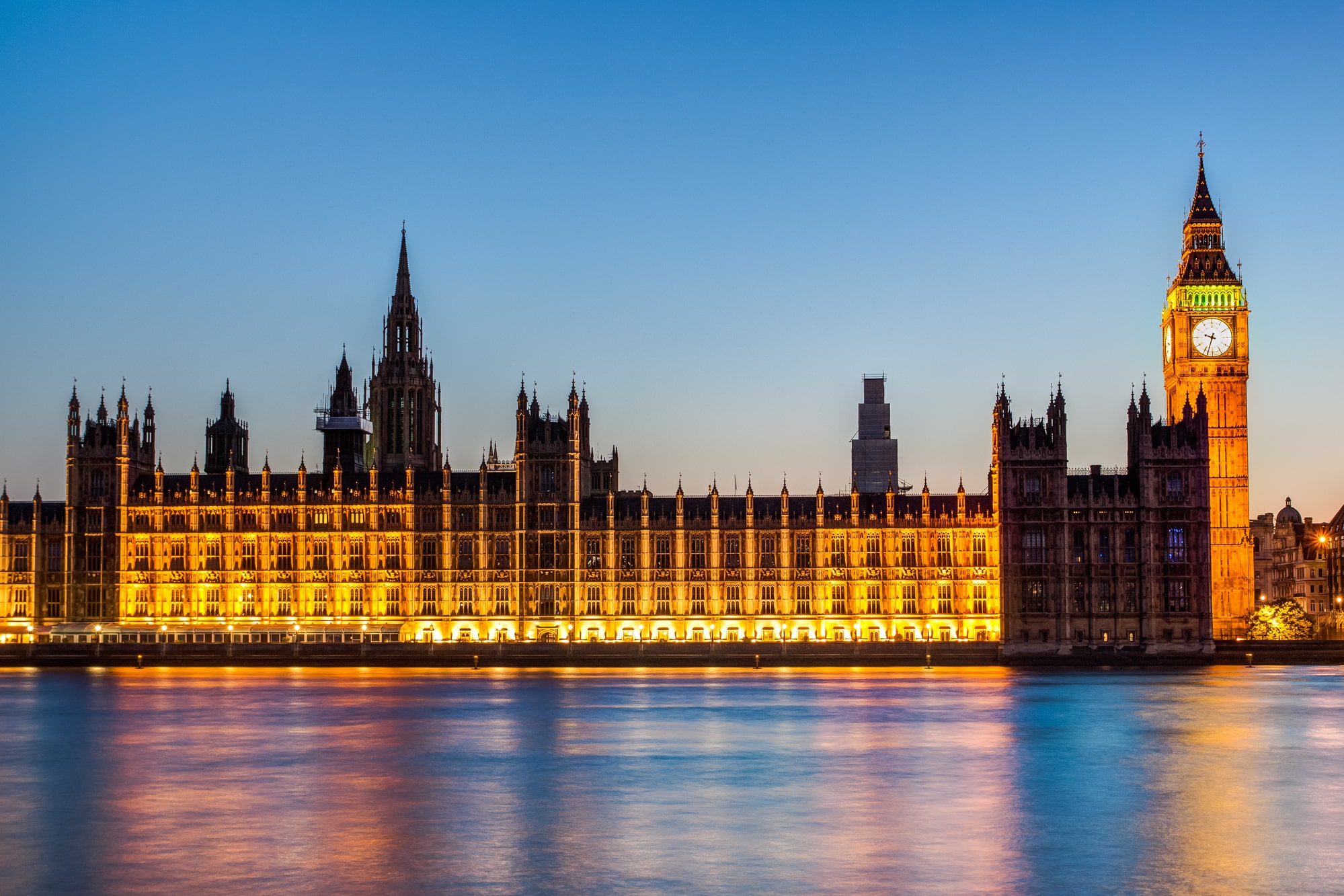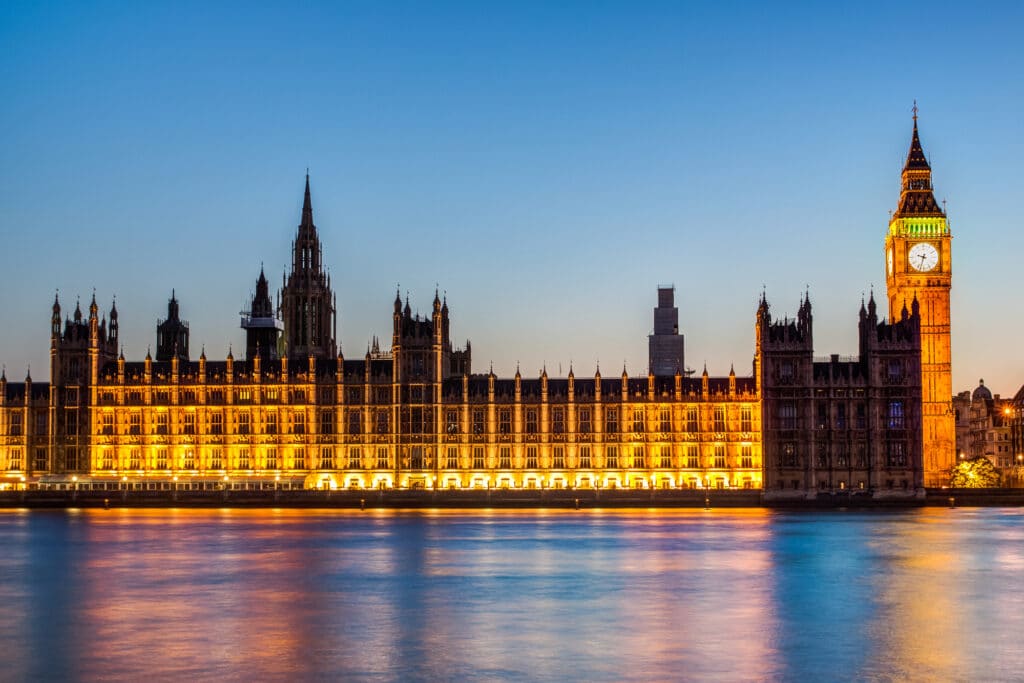Should companies have a head of human rights?
Business Ethics Debates | read time: 6 min
Published: 17 December 2021

Baroness Young hosted our second House of Lords debate this year and began by sharing her optimism at how far the human rights agenda has evolved over the last few decades. Professor Parosha Chandran, the UK’s leading anti-slavery lawyer and award-winning human rights barrister opened the discussion. She highlighted some key human rights cases and reasons why companies need to prioritise human rights before the debate considered whether companies should appoint a head of human rights.
The impact of changing human rights legislation
There are now multiple laws across the world which focus on human rights due diligence. These include the French Devoir de Vigilance and the Dutch Child Labour Due Diligence Law, which require supply chain human rights due diligence and place reparations and liabilities on companies, as well as the California Transparency in Supply Chains Act and the UK’s Modern Slavery Act. A number of new laws are also coming into force, in particular the EU Directive on mandatory human rights, environmental and good governance due diligence which is likely to become law in 2022.
Parosha outlined the case of Signal International in the USA. The company asked over 500 Indian workers to pay US$20,000 in return for the false promise of a green card to settle in the US. Workers had passports witheld and were held in a concentration-camp type conditions for which they had to make a monthly payment of $1,000. Pro-bono lawyers took up the case and the US$11 million fine on Signal turned into a US$20 million settlement and the company was forced into bankruptcy.
Increased risk of prosecution for human rights abuses in the supply chain
The current case of child labour in some of Côte d’Ivoire’s cocoa plantations was also highlighted. It has been suggested that children from Mali have been trafficked to work on these plantations without pay, with inadequate protective equipment and loss of freedoms. Several high-profile organisations have been implicated in this alleged use of trafficked children in their supply chains, including Nestlé, Mondelēz, Cargill, Mars, and Hershey’s, among others. They are now facing a child slavery lawsuit in Washington DC, brought about by International Rights Advocates (IRA) on behalf of eight former child slaves. Until now, companies were not held responsible or accountable for human rights abuses in the supply-chain however clearly this is starting to change.
Parosha finished her opening remarks summarising what a head of human rights should be responsible for. Responsibilities include: –
- analysing human rights risks across all business activities,
- developing a strategy to address these risks,
- conducting adequate due diligence to analyse third party risks,
- reviewing company policies on human rights,
- auditing high risk suppliers, and
- ensuring there is an effective speak up/grievance mechanism so that all stakeholders aware of human rights abuses can raise any concerns anonymously.
Her final remark touched on a simple suggestion made by a child, that organisations should have the same level of knowledge and transparency about their supply chains as they do about the product ingredients published on their packaging.
Should companies have a head of human rights?
The topic of the debate was whether organisations should have a head of human rights. The majority of the room was in favour of corporates having such a role, although it became clear that most do not yet have this position in place.
Key points from the debate.
- It would ensure compliance with emerging regulations
For multi-national organisations, the development of legislation is moving in a direction where mandatory human rights due diligence and risk assessment will be required. Therefore, a head of human rights is beneficial in order to keep track of and respond to these significant legal developments.
- It would bridge different departments
The role would be crucial for the organisation to bridge its business functions by working with all departments and offering overarching, independent oversight of the human rights strategy needed. It is clear that in many organisations, there are a range of functions that need to be brought together, including supply-chain, procurement, operations, human resources, health and safety, legal and compliance.
- It would provide direction
It would seem that the responsibilities for a head of human rights are not yet fully defined and are almost certainly organisation-specific. However, without a dedicated ‘head of’, it is hard to see human rights obtaining the emphasis, direction and coordination required.
- Stakeholders care about these issues
Human rights are important to various stakeholders, for example, some public bodies are already making requests to understand human rights policies and systems. The rise in ESG means that some investors are also looking for evidence of human rights strategies and indicators. A head of human rights would provide a strong signal that the organisation is serious about tackling human rights issues and could provide the focal point for questions from interested stakeholders.
- Human rights first need to be made a priority
In order for the role to be established, the board needs to believe human rights are a priority and be willing to resource and support this position. For many organisations this is not the case as yet. Indeed, other ESG topics are taking up centre stage, in particular carbon neutrality, environmental performance, data privacy as well as diversity and inclusion.
- The role needs to have a clear purpose
There is a knowledge gap around what human rights really means and appointing a head of human rights may be fruitless, unless a clear purpose for the role is established. The title ‘head of’ should not be the focus but rather the priority must be to clearly define the activities and key responsibilities that will be fulfilled by the holder of the role
- Enough resources need to be allocated
A lack of resources is hindering the ability of many organisations to establish the role. Organisations may have to reach a certain level of maturity first so the head of human rights has sufficient influence and resources to be effective in their organisation. In some sectors, it appears that the business case for such a role is yet to emerge
- It is not clear where it would sit
The attendees who already have ‘human rights’ in their job titles shared that they report to a variety of senior positions such as HSE, supply-chain and in one case in legal/ethics/compliance. Where a head of human rights fits into an organisation is almost certainly specific to each organisation’s sector and activities. Some organisations in the room would struggle to know exactly where to fit a lead person on human rights
- It might be counterproductive
It may be counterproductive to have a head of human rights as there is a risk of clashes between departments dealing with overlapping human rights issues. By building a strong compliance and ethics programme, the organisation can work collectively to build human rights’ respect into their operations.
- It does not go far enough
A head of human rights is a good first step in providing a statement of intent, but the role alone does not go far enough and needs to be supported by a long-term sustainable business plan. Human rights should be embedded into the organisation to ensure the role is not about human rights ‘greenwashing’. Therefore, conversations are needed within organisations to establish a culture of respect for human rights.
GoodCorporation’s view:
Overall, the debate suggests that this is a fast-moving topic. The new laws that are coming into force are pushing organisations to consider human rights in a much more fundamental way than before. Many organisations have seen human rights only as a communications issue because of the Modern Slavery Act statement. But these organisations are now seeing that concrete action is going to be required. However, whether or not a ‘head of human rights’ is needed, will probably remain company specific for the time-being. For those organisations in higher risk sectors, this is already on the agenda, or will be on the agenda in the next 1-3 years. For less exposed companies, they may avoid dedicating any specific person to human rights for the foreseeable future.
For GoodCorporation, these developments are welcome. Awareness of human rights is increasing. As a result we expect more businesses to address this seriously, taking steps to fulfil their obligations, to demonstrate their respect for human rights and take remedial action when something goes wrong. The first step for all corporations is to evaluate human rights risks so that a sensible appraisal of the organisation’s own exposure can be made. This will enable the company to decide what governance, structures, procedures and resources are required
work with us
